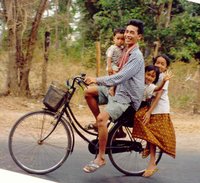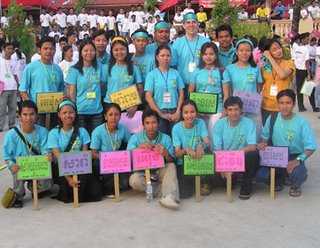Pillars vs. Nomads
 I've always had tremendous admiration and respect for pillars in communities . . . those people who dependably provide support, strength and continuity in a world of flux and uncertainties; those people who always seem to be there, permanent fixtures, if you will, in neighborhoods where babies are born, children grow up and parents share wisdom and memories. Part of me desires this place in life.
I've always had tremendous admiration and respect for pillars in communities . . . those people who dependably provide support, strength and continuity in a world of flux and uncertainties; those people who always seem to be there, permanent fixtures, if you will, in neighborhoods where babies are born, children grow up and parents share wisdom and memories. Part of me desires this place in life.And though, my yearnings for travel have never been as strong as my husband's, I found myself retouching the thrill of it in the wee hours of the morning. I made a brief stop at the Baltimore Airport and immediately felt the surge of adrenaline and excitement I had experienced many times before when I prepared to travel. Just hearing the announcements in Spanish and seeing the people gather their baggage and enter reminded me of the wonder I always felt at the chance to touch a world bigger than here.
During my drive back home, the sun began to rise and I experienced the breathtaking and joyful transformation of the morning sky. I wondered why I don't tear myself out of bed more often to watch, for it wells up such hope and anticipation in me for the potential of a new day, new beginnings, new experiences.
New beginnings, the dawning of a new day, embarking on a new journey. Strangely it all flows together in my mind and purpose. Perhaps I am too addicted to that feeling to be a pillar. My mother always told us to "bloom where you're planted." Though that could be interpreted as planting yourself somewhere, I have endeavored to do that even though my life has turned out to be more like a nomad. I suppose the hope in flowers are in their seeds and seeds have a miraculous way of flying in the wind to bigger worlds . . . kind of like nomads.











